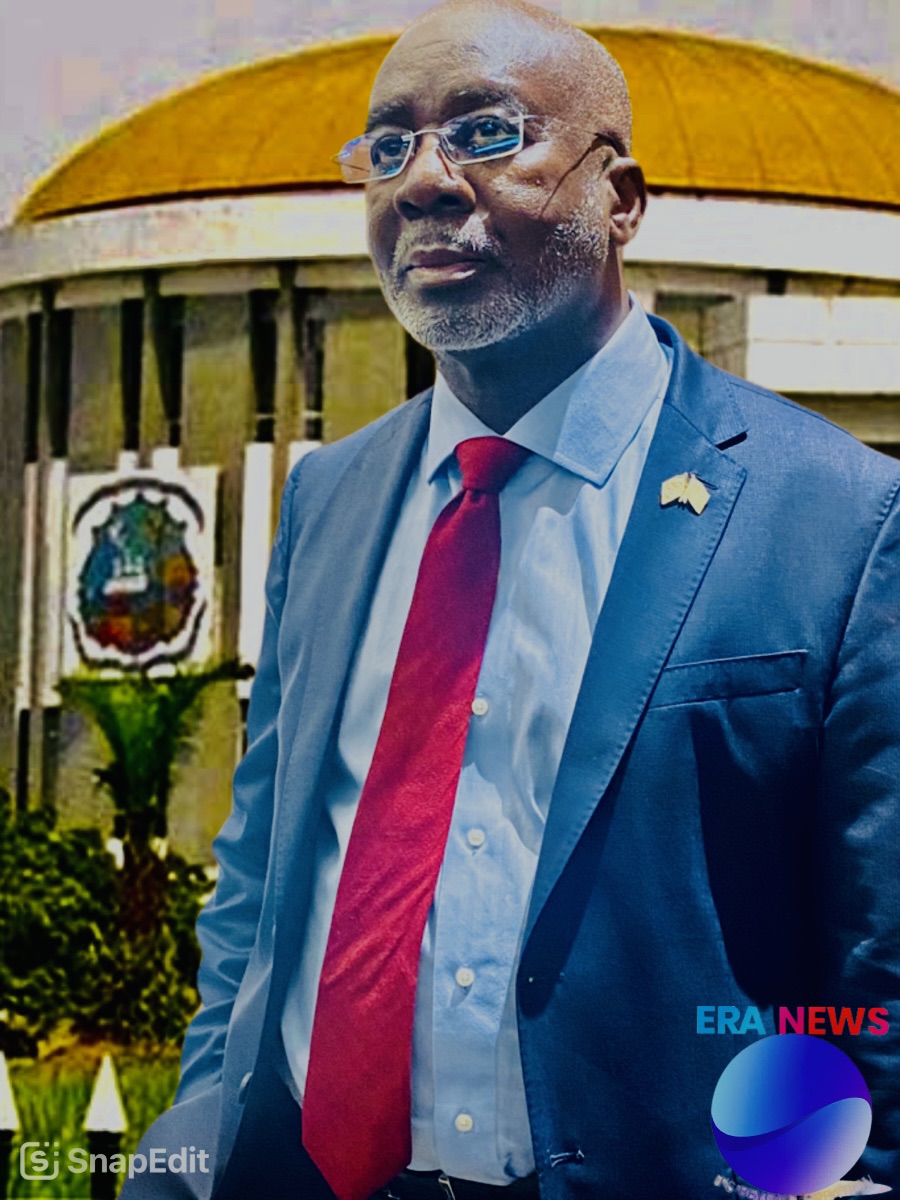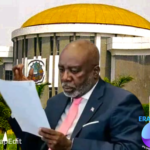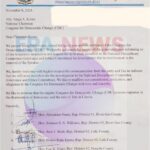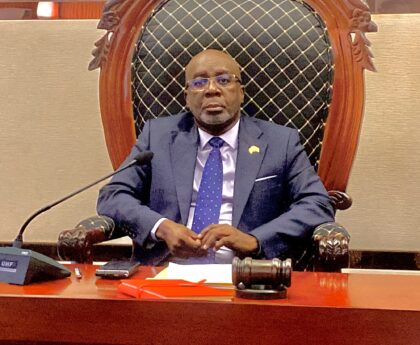As Speaker J. Fonati Koffa faces mounting pressure from a majority members of 43 lawmakers within Liberia’s House of Representatives, questions arise about his continued grip on power and the sources of his financial backing. Many political observers suggest that Koffa’s position as Speaker has been weakened to the point of “lame duck” status, with opponents questioning his ability to wield influence effectively in the face of substantial internal opposition.
Financial Backing Amidst Crisis: Questions Around Alleged Funding
Rumors have circulated that Koffa has access to nearly a million dollars in funds to aid his efforts to retain his role. Speculation is rife about who might be providing this financial support, and why anyone would invest significant resources in what appears to be a failing attempt to maintain control. Critics argue that any such financial inducements may lack impact if Koffa cannot effectively exert power or authority without broad support among lawmakers.
This lack of leverage raises questions about the efficiency of using financial resources to shore up a Speaker facing widespread dissent. Without majority support, the use of funds to sustain his leadership may only delay an inevitable change in the House’s structure rather than consolidate his control.
The Limits of Power in a “Lame Duck” Position
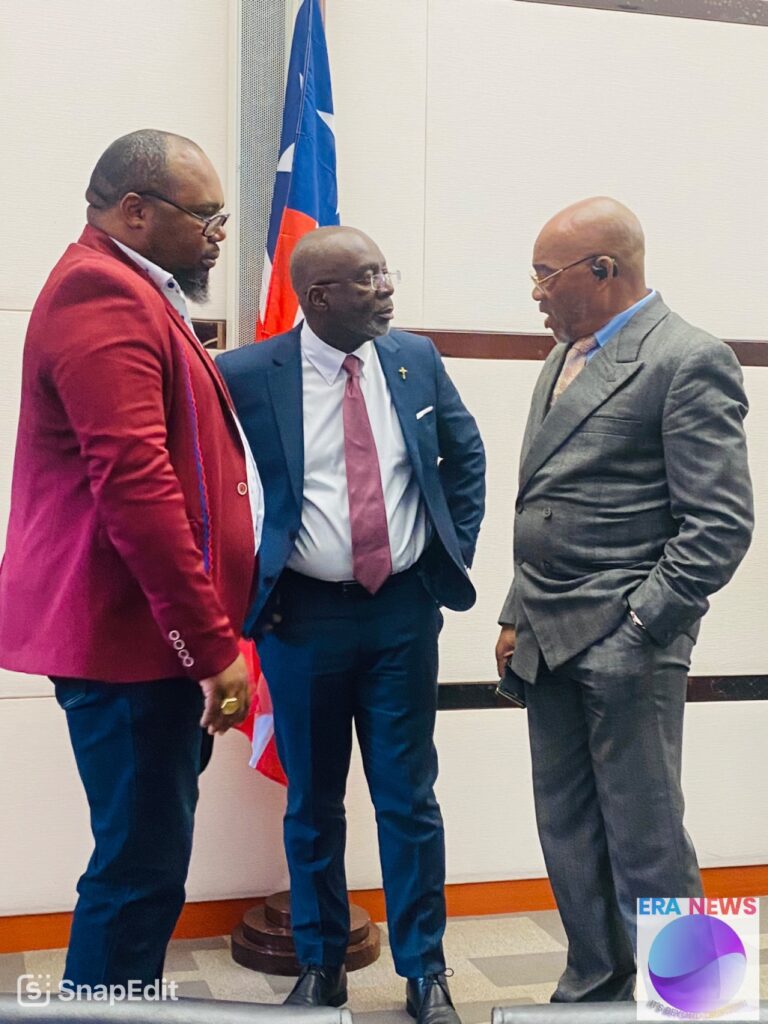
The fundamental challenge facing Koffa is one of authority and legitimacy. Under Liberia’s legislative structure, the Speaker must navigate a dynamic where he is “first among equals,” and his power relies significantly on consensus and support from fellow lawmakers. With a strong majority of 43 lawmakers actively opposing him, Koffa’s ability to influence House proceedings and pass legislation is substantially weakened.
When a Speaker becomes a “lame duck,” their capacity to perform core functions—such as negotiating budgetary decisions, coordinating with the executive branch, and representing the interests of the House—is sharply reduced. A divided House of Representatives risks legislative gridlock, impacting not only the Speaker but also Liberia’s governance overall. The majority bloc has made it clear that they do not recognize Koffa’s authority, effectively paralyzing any unilateral decisions he might seek to make.
Challenges in Governance and Financial Requests
Amid this backdrop, Koffa’s recent moves to Finance in an attempt to secure funding on behalf of the House have been met with skepticism. Observers note that without the backing of the majority bloc, any financial requests purportedly made in the name of the House of Representatives are unlikely to be approved or actionable. This situation underscores the precariousness of Koffa’s position: while he may retain the title of Speaker, the reality is that his powers to act on behalf of the House are significantly restricted by his lack of support.
Given the legislative system, any attempt by Koffa to leverage resources or conduct business on behalf of the House without broad-based support will likely be met with resistance or outright refusal. The government’s institutions are structured to prevent unilateral control, meaning that Koffa’s maneuvers—absent majority approval—may be ineffective.
Calls for Resignation Amid Leadership Crisis
As the internal power struggle continues, calls for Koffa to step down have grown louder. Critics argue that he should recognize the limitations imposed by his “lame duck” status and consider relinquishing his role. They suggest that maintaining the Speaker position in name alone, without the necessary support, only serves to impede the legislative process. Stepping down, in their view, would enable the House to choose a new leader capable of unifying lawmakers and effectively navigating the challenges facing Liberia’s government.
For some, the question is not just about Koffa’s ability to function as Speaker but also about the perception of power within Liberia’s political landscape. Maintaining the title without the authority to enact meaningful change may ultimately harm Koffa’s legacy and reputation. Observers point out that the longer he clings to the role, the more challenging it may become to restore public confidence in both his leadership and the House’s effectiveness.
A Critical Juncture for Liberia’s House of Representatives
The ongoing struggle highlights the importance of accountability, unity, and leadership within the Honorable House of Representatives. As Koffa faces one of the most significant tests of his political career, the stakes extend beyond his personal ambitions. The outcome of this crisis will shape the effectiveness and cohesion of Liberia’s House of Representatives in the years to come.
For now, Koffa’s path forward appears fraught with obstacles. Whether he steps down or fights to retain his position, the question remains: can a Speaker without the support of his colleagues truly lead? For many lawmakers and observers, the answer seems increasingly clear—effective leadership requires more than just a title.

